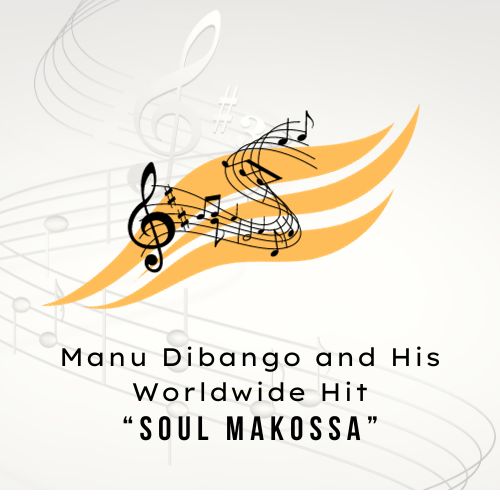Introduction to Manu Dibango
Manu Dibango is a jazz saxophonist and vibraphonist hailing from Africa’s French Cameroon. An only offspring of members from Cameroon’s Duala and Yabassi ethnic groups, Dibango learned and enjoyed music as a child while he was attending a Protestant church. He became a member of an influential Congolese rumba combo Grand Kalle et l’African Jazz aka African Jazz, and collaborated with many other artists and musicians such as Herbie Hancock and Fela Kuti. He achieved much international recognition via his Top 40 hit “Soul Makossa” in during the 70s music era, and the song has become influential since.
Dibango’s early years in Africa
Professionally known as Manu Dibango, Emmanuel N’Djoke Dibango is an African saxophonist and vibraphone player born on December 12, 1933 in Douala, French Cameroon. Young Dibango used to attend a Protestant church where he learned about and embraced music. By 1941, he was accepted at a colonial school where he learned the French language. Dibango is the only child of a sharecropper father and a small-time fashion designer mother. His parents came from the rivaling ethnic tribes Yabassi and Duala. Throughout his formative years, Dibango gradually forgot his father’s Yabassi language and favored his mother’s Duala dialect instead.
Dibango’s music career and rise to international stardom with his hit “Soul Makossa”
Dibango started performing professionally, for a seminal Congolese rumba group Grand Kalle et l’African Jazz simply known as African Jazz. The group had collaborations with numerous musicians such as Herbie Hancock, Fania All Stars, Bill Laswell, Fela Kuti, Bernie Worrell, King Sunny Ade, Ladysmith Black Mambazo, Don Cherry and Sly & Robbie among others.
In 1972, Dibango released the album Soul Makossa and the carrier single with the same title. Later that year, the US-based Atlantic Records licensed the the track from the French label Fiesta, and also released it as a single there. In mid-1973, “Soul Makossa” became a Billboard Top 40 pop hit, peaking at #35. It also reached its peak positions on the Billboard adult contemporary and R&B singles charts at #29 and #21, respectively.
The album Soul Makossa, on the the other hand, also landed at #79 on the Billboard 200 and #11 on the R&B albums chart also in that same year.
The song has also been often noted as one of the earliest disco recordings and become a big influence on future recordings by other artists. Several pop hits have been influenced by “Soul Makossa” which include Michael Jackson’s “Wanna Be Startin’ Somethin,'” the Fugees’ “Cowboys” and Rihanna’s “Don’t Stop the Music.”
Eddie Murphy’s 1982 parody song “Boogie in Your Butt” used Soul Makossa’s basslines and horn parts. In 1990, the hip-hop group Poor Righteous Teachers included the song’s bridge and drum pattern for their own track “Butt Naked Booty Bless.’
Later years
In 1998, Dibango worked in the recording studio with Cuban artist Eliades Ochoa for his album CubAfrica. In 2004, he was chosen as a UNESCO Artist for Peace and was appointed as the first chairman of the Cameroon Music Corporation.
He re-recorded this track with a recent R&B/hip hop artist Akon and a second version of this, “Soul Makossa 2.0” came out in 2011. He also performed at an 80th anniversary concert held in Olympia, France.
Manu Dibango’s discography (may be impartial)
Atlantic Records
(May 1973)
- A: Soul Makossa (The Original Version)
- B: Lily
(May 1973)
- A: Soul Makossa (The Original Version) [Mono]
- B: Soul Makossa (The Original Version) [Stereo]
(Sep 1973)
- A: Dangwa
- B: Oboso
(Sep 1973)
A: Dangwa [Mono]
B: Dangwa [Stereo]
(Mar 1974)
- A: Weya
- B: Moni
(Mar 1974)
- A: Weya [Mono]
- B: Weya [Stereo]
(1975)
- A: Super Kumba
- B: Wasa N’Dolo
(1975)
- A: Super Kumba [Mono]
- B: Super Kumba [Stereo]
Mango Records
(1980)
- A: Reggae Makossa
- B: Full Up
Atlantic Oldies Series
- A: Soul Makossa (The Original Version)
- B: Weya

